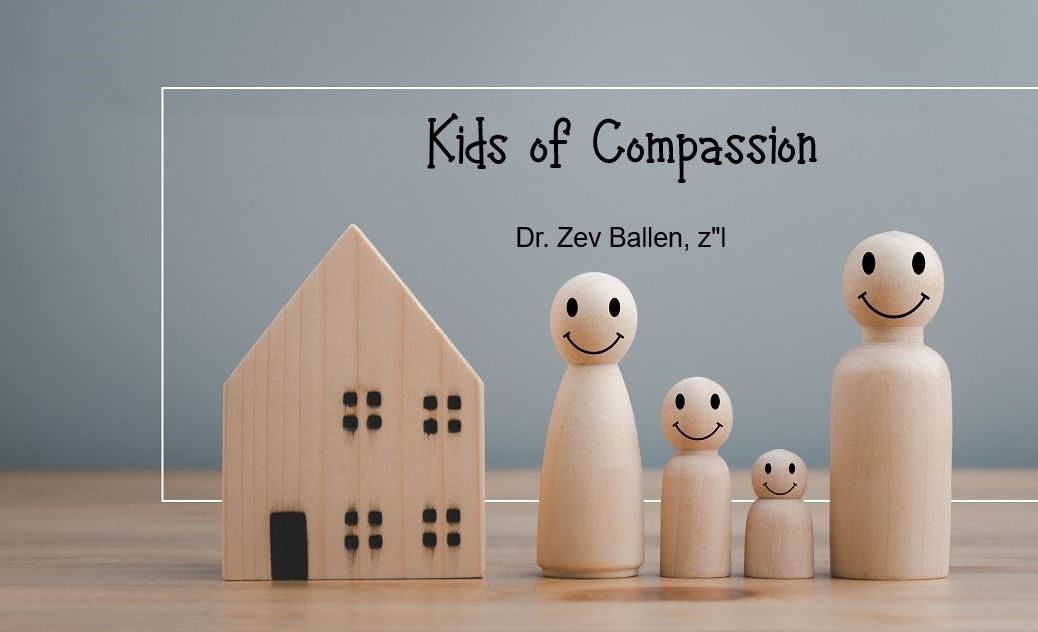
Be Positive!
Every child craves good word; parents and teachers must use this craving to stimulate the child to achieve success in learning, mitzvah performance and more...

Positive reinforcement in child education – tangible pleasures such as a present, sweets, or compliment – stimulate positive desires in children. That's easy to understand, because adults enjoy positivity too! Do not do the opposite! Negativity is seldom constructive – threats, rebukes and humiliation destroy a child, robbing him of all self-confidence. Furthermore, negative reinforcement conditions the child to think that the tasks the teacher (or parent) assigns are bitter. He must rebuke the child so that he will do them. The child thinks that the parent or teacher is taking all the pleasure out of his life and robbing him of his freedom, joy of life, and playtime. Under these circumstances, the child will certainly not want to do his homework.
People are easily drawn to fulfill their desires because they anticipate the pleasure of fulfillment (even if only fleeting) afterwards. We can use this principle wisely to give the child fulfillment and pleasure when he does positive things. For example, teachers can tell a child: "If you do this task, I will send your parents a note that you are a good boy (or girl) and that they should buy you a special gift." Or the teacher can buy the child a gift. The prize should be small and certainly not expensive. The very fact that the child has won a prize makes him happy and strengthens him. This is even truer if he craves a certain thing, such as a candy, toy or whatever else is age-appropriate.
Every child likes sweets. And every child craves honor; he likes to be praised and valued. The educator must use this craving to stimulate the child to achieve success in learning, mitzvah performance and  more.
more.
The parent and teacher must know how to use the child's material cravings to entice him to do the right things. After he receives a material reward for his efforts, it is easier to introduce him to the spiritual dimension. We can tell him that the pleasure that he felt from the prize is nothing compared to the spiritual pleasure that he will enjoy if he continues on this path of learning and Torah observance. Our Sages teach that even when a person has ulterior motives in performing a mitzvah, he will eventually perform that mitzvah with positive intentions. The main thing is to get started.
Parents and teachers must never forget that they hold the child's life in their hands – literally!
When the Sanhedrin was dealing with matters of life or death, they required 23 judges to sit on the case. In the same manner, when an educator must make decisions about a child who is experiencing difficulties and he wants to punish, suspend or expel him, he must know that his decision can literally determine the child's entire fate in life. Nobody has the authority to make those types of decisions alone. Improper rebuke can destroy a child's soul; all the more so punishments or expulsion. If the educator would consult with someone else, think again or pray to G-d for guidance, he would very possibly reach a different solution for the problem. He might understand how to stimulate the child's desire. When he punishes, he is liable to break the child.
The teacher must understand that he is dealing with a life and death situation. He should not take such responsibility on his shoulders alone. Gaichazi, Elisha's servant, totally went downhill once he was rejected. Other wicked people who brought death and unspeakable destruction to the world went off the right path after they were rejected by their rabbis.
When a school wants to suspend or punish a child in a similar manner, those in charge must think long and hard about the implications of their punishment. They must not break the child or his desire. There are situations in which it is impossible to leave a child in a particular setting. This is generally the case if he is very destructive to his surroundings; if this is so, the school has responsibility toward the other children to ensure that they will not be harmed. The school must ensure that one unruly pupil will not damage the souls of other children by leading them into bad behavior: that is also a life and death situation. But as long as a pupil's behavior does not negatively impact the other students, the educators must do everything not to punish him in a way that will break his will.
Serious reflection and consideration must accompany every step in child education. Under no circumstances should the educators act out of pressure or acrimony. When in doubt, be positive! With kindness and a good word to the child, the parent or teacher will never go wrong.










Tell us what you think!
Thank you for your comment!
It will be published after approval by the Editor.